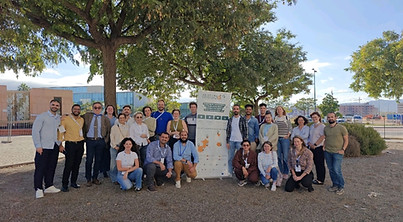Microbial Ecology & Evolution


About the Lab
Our current research is directed toward understanding ecological, physiological and evolutionary adaptation of microbial populations, especially those playing fundamental processes in a key step of the global biogeochemical cycling of nitrogen, ammonia oxidation. Our research covers two large research themes: “microbial dynamics in fluctuating environments” and “sustainable agriculture”. This research is performed at the ecological level, through analysis of community activity and stability (resistance/resilience) to environmental perturbations such as pH, temperature or land-use change. Our research contributes to understanding the impact of agriculture (through fertiliser use and synthetic nitrification inhibitors in diverse land-use environments) and sustainable agriculture (via Biological Nitrification Inhibition) on microbial communities and associated ecosystem processes. Our work also focuses on understanding how environmental change and agricultural input impact microbial processes over the longer-term evolutionary scales, determining mechanisms leading to 2.5 billion years of diversification (e.g. horizontal gene transfer, gene duplication, molecular selection) associated with environmental adaptation. Our research combines wet and dry lab approaches to analyse the microbial adaptation from the cellular to the community level.
Research Themes
Get Involved

Post-doctoral fellowship applications
We welcome applications from motivated PhD holders with common research interests for post-doctoral fellowship applications, including Marie Curie Individual Fellowship, Newton International Fellowship, Leverhulme Trust Early Career Fellowship, EMBO fellowship and other national and international fellowships.











